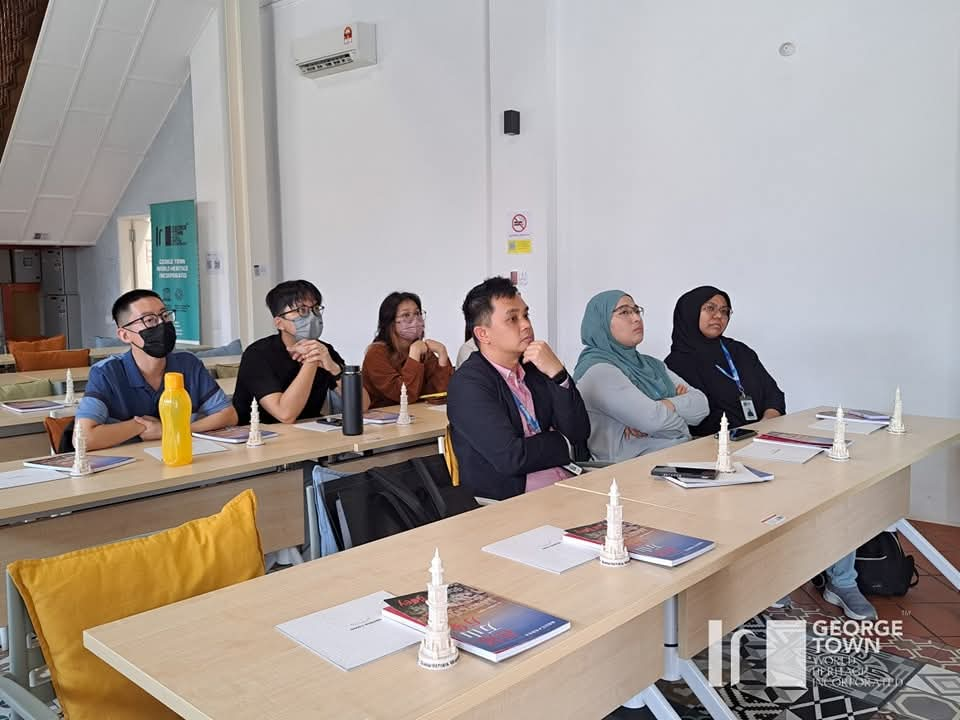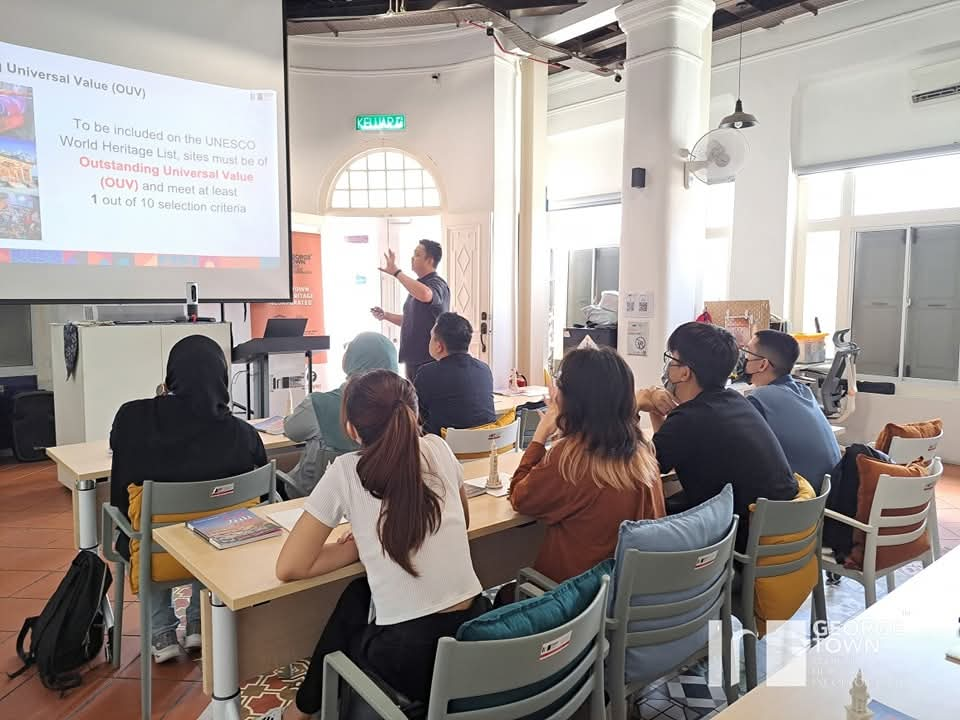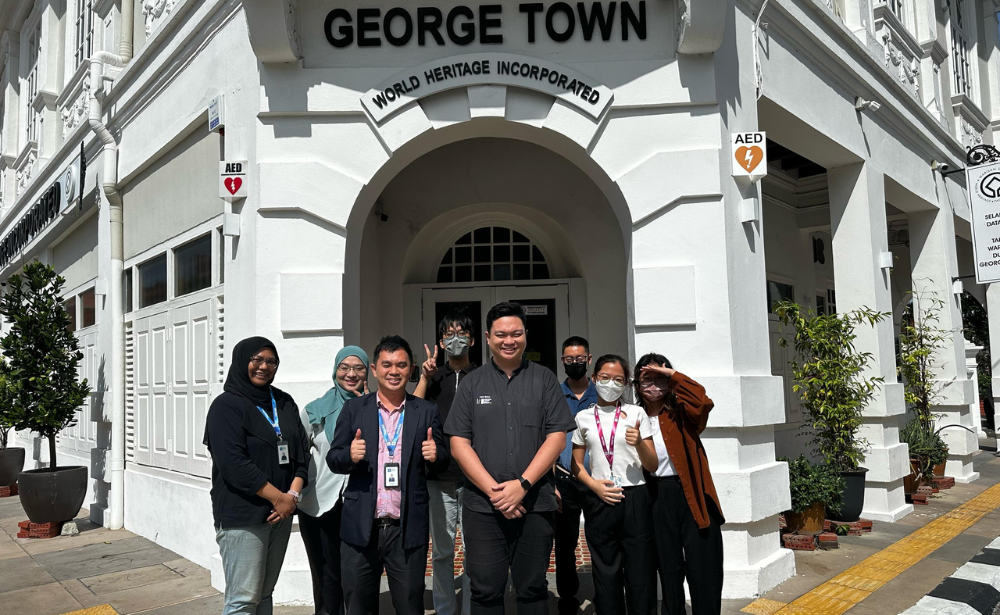On 10 April 2025, students from the School of Hospitality and Tourism at SEGi College Penang gained firsthand exposure to the world of heritage conservation and urban tourism through an immersive educational visit to George Town World Heritage Incorporated (GTWHi). Guided by lecturers Lee Chin Ching, Sabrina Samsudin, and Sofia Sarmimi, the visit formed part of their Strategic Planning for Tourism & Leisure and Urban Tourism modules, offering a real-world dimension to classroom learning.
The session was hosted by GTWHi’s manager Vick Quah, who delivered an insightful presentation on George Town’s status as a UNESCO World Heritage Site. Students were introduced to the intricacies of preserving architectural and cultural heritage in a living city, while learning about the policies and collaborative efforts that support sustainable urban development and tourism. The experience brought to light the delicate balance required between conservation and modernisation—an increasingly critical theme in global tourism planning.
This living classroom provided students with more than just academic enrichment; it nurtured their understanding of responsible tourism and community-based heritage management. According to UNESCO, cultural and natural heritage sites are key to strengthening identity and promoting social cohesion within sustainable urban environments. Through this exposure, students discovered how heritage destinations can be both protected and made accessible through strategic engagement and planning.
The visit also underscored the importance of forging institutional partnerships to promote sustainability in education and practice. As future tourism professionals, students were reminded that successful destinations rely not only on visitor numbers but on inclusive policies that respect history, elevate communities, and champion environmental stewardship. With tourism contributing to more than 10% of global GDP and supporting one in ten jobs worldwide, cultivating a workforce that understands the intersection of culture, economy, and environment is essential.
By linking academic content with on-ground realities, the initiative strengthened students’ skills in critical thinking, strategic tourism planning, and sustainable destination management. More importantly, it reaffirmed SEGi’s commitment to producing graduates who lead with purpose, cultural sensitivity, and a global perspective.
This event is organised in support of the following United Nations Sustainable Development Goals (SDG):
Quality Education (SDG 4)
Sustainable Cities and Communities (SDG 11)
Partnerships for the Goals (SDG 17)



